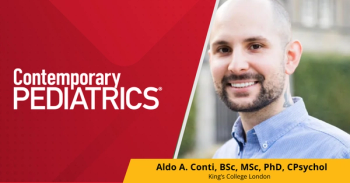
- Consultant for Pediatricians Vol 5 No 1
- Volume 5
- Issue 1
Why "Physicians Don't Listen"
I've learned (the hard way) that many parents of chronically ill children are sensitive and reliable observers of their children. What prevents physicians (at all levels of training) from failing to appreciate this fact?
I recently spent 45 minutes talking with the mother of a child who is in the hospital. The daughter is a young adolescent with a chronic, progressive neurologic disorder, and has had 3 episodes of respiratory distress for which she has been hospitalized during the past 3 months. Our conversation started quite innocently:
"How are things going?" I asked.
"We're having a communication problem," she answered.
"What do you mean?"
"I'm communicating, but they're not listening to me."
This woman was disturbed that her concerns about her daughter's condition were being ignored by the medical staff. We'd had this conversation before, but this time she seemed much more intense and more frazzled. As we talked, I mentally started to form a differential diagnosis, with her help, of "physicians not listening."
I've learned (the hard way) that many parents of chronically ill children are sensitive and reliable observers of their children. What prevents physicians (at all levels of training) from failing to appreciate this fact?
Pride: It is hard for us as physicians--especially when too many things are happening to too many patients at once--to accept the principle that a layperson could know more than we do. This mother modestly stated, "I don't know what to do when something goes wrong, but I know when something is wrong."
Fear: A patient with an exotic diagnosis or a little-seen condition stimulates our interest but may also arouse fear. There are no guidelines on how to treat many of these conditions. We are left with generic physiologic guidelines (still quite helpful) and empiric improvisations. Terra incognita is a scary place for all concerned. This mother says about her child: "I think they're afraid of her."
Resignation: It is emotionally trying to talk with the parents of a child with a terminal condition, or with parents of a child who has a do-not-resuscitate order. The path of least stress is to avoid such parents. These, however, are the parents who really need us to listen.
Inexperience: Teaching hospitals are full of physicians who are there to learn. If we are honest, we would admit we are all inexperienced in regard to a great many problems. We may temporize when we don't know what to do next. To the parent who knows what her child will look like in 4 hours based on what he or she looks like now, our inexperience and reluctance to accept predictions (based on repeated parental experience) is exasperating.
Too much experience: This, I think, may be the chief reason why physicians often don't listen. Most pediatricians, including those in the earliest phases of their careers, have encountered parents who say puzzling things. These parents--for whatever reasons--tell physicians of accomplishments achieved by their child that are clearly impossible given the child's medical or developmental status. Several encounters with such parents may make the physician skeptical, and cause him or her to "tune out" the statements and concerns of parents of "chronic kids."
How do we treat "physicians not listening"? I suggest some classic cures: humility, avoidance of overgeneralization, continuous acquisition of knowledge and, of course, making a conscious effort to listen.
Articles in this issue
about 20 years ago
Photoclinic: Ringwormabout 20 years ago
Photoclinic: Keloid at the Site of a Chickenpox Lesionabout 20 years ago
Photoclinic: MRSA Skin Abscess and Osteomyelitisabout 20 years ago
Wilson Disease in a Teenagerabout 20 years ago
Genetic Disorders: Toddler With Skeletal, Ocular, and Cardiac Anomaliesabout 20 years ago
A 9-Year-Old Girl With Eruptions and Malaiseabout 20 years ago
Branchial Cleft Cyst in an InfantNewsletter
Access practical, evidence-based guidance to support better care for our youngest patients. Join our email list for the latest clinical updates.






